I wrote this tribute to my dad three years ago. Since then, he turned 94 years old, my mother died, he finished a book he was writing, and he has begun a new one. Time to re-post!
“Life is a fatal adventure. It can only have one end. So why not make it as far-ranging and free as possible?” Alexander Eliot
When my dad was forty and I was four, he was awarded Guggenheim Fellowship, and we lived in Spain for a year. There he wrote Sight and Insight – on how to ‘see’ art (This has recently been reissued by BookPartners.) While he was there, he visited Delphi in Greece, and, along with my travel-loving mother, questioned why we should return to the hectic, stressful race of Manhattan magazine publishing when he could raise his family in Greece.
Within a year, he’d retired from Time, hopped on a Greek freighter and taken us all back to Greece. There we stayed several years, living in the mountains north of Athens, and later in a small fishing village on the island of Corfu. When restlessness set in, we boarded a Yugoslav freighter for a slow, exotic journey through Middle and Far East, all the way to Osaka, Japan. The next year we moved to Rome, Italy, for a few years, and then settled in Sussex, England. When my brother Jefferson and I moved to the U.S. to attend college, he and my mother received a fellowship to study Zen Buddhism in Kyoto, Japan. The following summer we met up again to house-sit for friends on the beautiful island of Oahu.
I didn’t know much about my dad’s early life till after I was in college – he’d come from a stream of aristocratic educators, the younger son of an English lord who arrived in Plymouth in 1632 and proceeded to be interested in the lives of the Algonquins. All Dad’s direct male ancestors were Harvard-educated, and his great-grandfather was the president of Harvard for fifty years, so I was intrigued when I learned that when he was eighteen years old, instead of attending Harvard, he drove across the country in an old Ford to live with the Navajos in New Mexico.
Art was his great love – and, on his return, instead of going to Harvard, he chose to attend the quirky little Black Mountain College so that he could study with Josef Albers. I spent a great deal of my childhood in museums, and we’d stand in front of an Albers painting, gazing at the squares, until my parents were absolutely certain that I’d ‘seen’ the colors the artist intended me to see. My father knew most artists who lived in New York during his tenure at Time Magazine, but he also had encounters with artists abroad. He told me stories about Matisse’s most important advice to him, talking to Picasso on the beach, Salvador Dali in the elevator (Salvador became a family friend in part because my mother, who lived several years in Spain as a girl, could speak to him in Catalan). The list goes on.
In 1968, when we lived in Rome, he and my mother spent six weeks in the Sistine Chapel to research a documentary on Michelangelo’s Sistine Ceiling. Their ‘research’ was done by having a scaffold built on wheels that they could lie on top of: this way they could be as close to Michelangelo’s work as he was himself; and to study and talk about the stories that he depicted on the ceiling. On the night of actual filming, my brother and I ‘slept’ on the benches in the Sistine Chapel. The hour-long documentary, “The Secret of Michelangelo – Every Man’s Dream,” was shown on ABC primetime (a Tuesday night, at 7 p.m.) but my dad insisted there not be any commercial interruptions, because the work had to be experienced in its entirety! And the network agreed.
Dad has published eighteen books – including books on art, mythology, history, and novels. He is also the author of hundreds of essays, published in magazines as varied as The Eastern Buddhist and England’s Systematics, and most well-known, his weekly column when he was the art editor of Time Magazine.
These are some things I remember: The times he received letters from total strangers who wanted him to know how deeply a book he’d written had affected them. My gifts at Christmas and birthdays were always books – books he’d read and he thought I’d love or thought were important that I’d read. That he loved walking – every day he’d take a long walk through Ashdown Forest, holding a fantastical cane he’d purchased in India when we were on the freighter trip: it curled in a solid spiral “to befuddle the devil,” the man who sold it to him explained. “He doesn’t know if you’re coming or going.” I was so proud of him when he came into our classroom at Michael Hall to teach my classmates a Navajo rain dance, and not for a second was I embarrassed by their teasing afterwards: I knew how jealous they were that they didn’t have a dad who could chant and twirl and dance like that! He also could recite – from memory – Vachel Lindsay’s The Daniel Jazz with a power and authority that was mesmerizing.
Dad turned 91 on April 28, and he still writes every day, for several hours, working on a retrospective of his life, that includes his thoughts about art and mythology and people, and also many poems. He is the beloved husband of my mother, Jane Winslow Eliot. Together, every morning, they walk down their little walk street in Venice Beach to the boardwalk for breakfast. Then they stroll across the wide expanse of sand to the edge of the Pacific, where my mother seeks shells and my father does a few T’ai Chi exercises. Even when I was a child, I remember how he’d pause in the middle of the sidewalk and stand on one leg, other leg and arm stretched out, a rapt smile on his face, his huge eyebrows wiggling like crazy to keep me giggling. “Balance is very important,” he used to say, when he finally stood straight again and continued walking.
Here’s what the inspired and inspiring artist Gregg Chadwick says about my parents: “In Japan, individuals of extraordinary talent and vision are recognized as living national treasures as they live out their later years. The American intellectual couple Alexander and Jane Eliot should be given honorary Japanese citizenship and awarded that honor. Recently when I met with Alex and Jane in their warm Venice bungalow I was struck by their graciousness and humility. The front room is crowded with treasures gathered from their years together. And their minds are full of some of the twentieth century’s most important memories.
In his book Sight and Insight Alexander Eliot describes a Chinese painter who, upon completing his masterwork, paints a door in the foreground, opens that door – walks through and is never seen again. I expect Alex and Jane to find that door and to walk through together leaving their art and writings as clues for us to find our own path.”
Here’s his bio that’s in Who’s Who in America:
ELIOT, ALEXANDER, writer; born Cambridge, Mass., April 28, 1919; son of Samuel Atkins, Jr. and Ethel Cook Eliot; married Jane Winslow Knapp, May 3, 1952; children: May Rose, Jefferson, Winslow. Student, Black Mountain College, 1936-38. Boston Museum School, 1938-39. Director, Pinkney Street Artists Alliance, Boston, 1940-41; asst. to producer March of Time newsreel, 1941-42; asst. dir films Office of War info., 1942-44; art editor Time Magazine, 1945-1960; Prof. emeritus program Hampshire College, 1977; Editor Parabola Magazine 1995-96; contributing editor Harvard Magazine, 1988-1995; author of Proud Youth, Three Hundred Years of American Painting, Sight and Insight, Earth, Air, Fire and Water, Greece, Love Play, Creatures of Arcadia, Socrates, A Concise History of Greece, Myths, Zen Edge, Fisher’s Guide to Greece, Abraham Lincoln, The Universal Myths, The Global Myths, The Timeless Myths; film (with Jane Winslow Eliot) The Secret of Michelangelo, Every Man’s Dream; Guggenheim fellow, 1960; Japan Foundation senior fellow 1975; Member of the Century Association and Dutch Treat Club, NYC. “The moon, the planets, pass around my heart. The sun shines into me, and in me as well. Yet what am I? A goose-pimpled crazy on a skewed glass bicycle, continually crashing into scribbled walls. And this moment, this being is the thing.”
This is what is true about my father: he is generous, wise, interesting, tolerant, humorous, good-natured, deeply appreciated by many, many people, always reading and writing and thinking and feeling. He is a poet. No matter what I’ve chosen to do or be in my life, he’s been supportive of it. He’s wanted to know about what I’ve been up to; he’s always been the main encourager of my writing. He’s a wonderful grandfather to my children, a devoted husband, a compassionate friend, a traveler, a passionate human being, an artist, a philosopher, a writer, a fellow-seeker. Thanks, Dad.

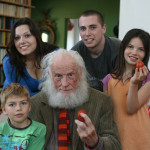
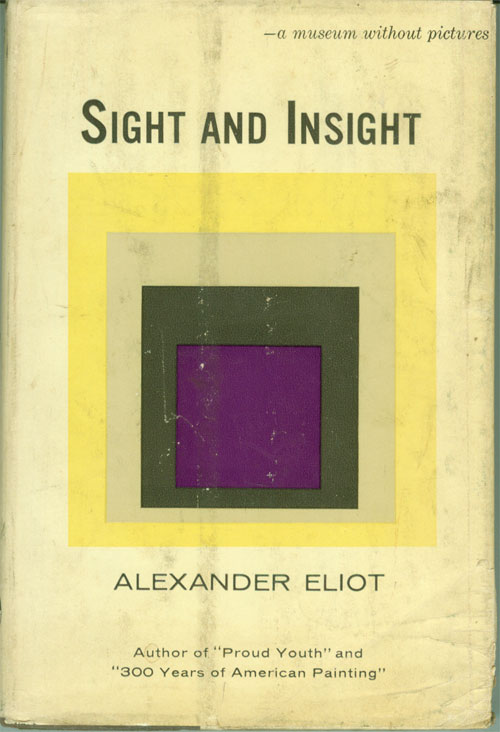
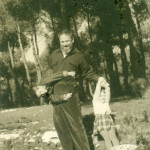
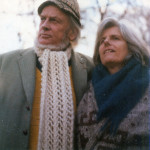
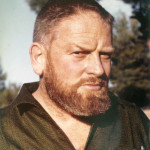
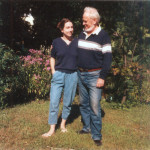
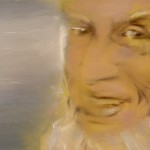
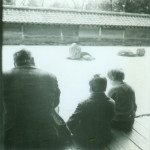
winslow, what a wonderful tribute! no wonder you’re the person you are, your parents gave you such a fabulous enriching childhood! wow!
Winslow,
I am happy to have met your Dad through this wonderful tribute. You are so Blessed to have parents that have given you and your siblings culture, art, life experience and appreciation for what truly matters. I am so happy to know you and though vicariously your parents.
In Northampton, MA sometime in the early 1980s, Alex Eliot walked into my bookstore and ever since, he and Jane have inhabited my memory. I think of them often, and I remember many fascinating stories. One story in particular always makes me smile. Alex walked into the bookstore wearing a bright red sock and a bright yellow sock. At some point during our chat, I mentioned the mismatched socks to him, and he said, “They’re not mismatched. I chose to wear them.” He explained that awhile back he’d received a telephone call from someone at the school where his son was attending, and they asked Alex to please come by to discuss a problem. When he went to the school to discuss the “problem,” he was told that his son was wearing mismatched socks and his son’s appearance wasn’t acceptable. “Really?” replied Alex. “What makes you think that my son’s socks are mismatched? Why can’t he wear whatever color sock he wants on either foot? Where are the sock rules?” Alex defended his son’s choice of socks, and left the startled school administrator. He explained to me that from that day, he’s chosen to wear whatever color socks he felt was appropriate for the day, and as a statement in support of his son’s fashion decision, and because he believed that the color choice of one’s socks was no one’s business except the person wearing the socks. You have to love someone who thinks this way.
Later, I read Alex’s book SIGHT AND INSIGHT, and now, every few years, I read it again, and I learn more from it. Do yourself a favor and find a copy. This book should to be in print forever.
Happy belated Birthday, my friend Alex! Love to both you and Jane!
What a delight to read this memento of your father, and to remember time spent with you and with him! Thank you, Winslow.
Thanks for all these great responses!
Abi’l-Khayr – “Father of the Good” – so great to hear from you! My father was delighted when I told him, and remembers you well.
What a fascinating man, Winslow. What an experience that must have been growing up as his daughter. I’m happy that he is living a long, passionate, art-filled life.
Nice post!
Kate
Thank you! Enjoyed browsing your site as well – especially those covers! http://writerkmadison.blogspot.com/
I would be interested to know Winslow if your father ever saw a Zeppelin and what he thought about it.
I will ask him – may I know why you are interested? Perhaps you are writing about zeppelins?
Dear Winslow Eliot:
How Blessed are you and how Blessed is your entire family to have shared your lives with such an incredible and unique man as Alexander Eliot.
To all who know him he holds different but equally important meanings and significance.
For me one of those special meanings is that he and your Mother spent time in Rome in 1968 creating the very important film:
“THE SECRET OF MICHELANGELO: EVERY MAN’S DREAM” which later aired on ABC Television.
Your Father and Mother were well aware that any radical so-called “restoration work” done in the Sistine Chapel would lead to removing much of Michelangelo’s Masterly final touches- especially in terms of the all important Chiaroscuro effects of light and dark shadows (now tragically lost to the restorer’s scrub brushes and highly questionable use of abrasive chemicals).
Of course your Father was 100 % correct.
At the time I was a student of the painter Frank Mason at the Art Students League in New York, and met with the Late Professor James Beck at Columbia University, people your Father knew well, all with the goal of hoping to stop or at least limit the carnage taking place in the Sistine Chapel.
Please refer to:
“Evidence of the Eyes: An Interview with Alexander Eliot”
By Einav Zamir On May 26, 2013, at: ArtWatch International Inc. at:
http://artwatchinternational.org/articles/alexander-eliot
Einav Zamir after interviewing your Father about his Michelangelo Sistine Chapel film, wrote the following:
“At the time, the film was both groundbreaking and immensely popular. Now however, it serves as a testimony to what has been stolen, through subsequent cleaning and restoration efforts, from the fresco’s original glory. Barely obtainable (there’s just one copy at the Central Michigan University Library in Mount Pleasant), and no longer broadcast on national television, The Secret of Michelangelo has become quite secret indeed.”
No truer words, Winslow, were ever spoken. But tragically even the one copy of your Father’s film that once existed at the Central Michigan University Library in Mount Pleasant, is no longer in their video collection. They recently informed me of this sad news that it has vanished.
Indeed, it appears that a concerted effort has been made not to allow people to see your Father’s film: THE SECRET OF MICHELANGELO because it clearly documents what the Sistine Ceiling looked like BEFORE all the over cleaning work took place.
I am prepared to offer you and your Father $ 1,000. (ONE THOUSAND) for a VHS and/or DVD copy of your Father’s 1968 film: “The Secret of Michelangelo: Every Man’s Dream”.
Surely your Father might be able to find some way to grant me this wish. It was after all- his film.
The man who worked with your Father and Produced the film, Milton Fruchtman, who built the billion dollar “Capital Cities/ABC Media Empire” is now 85 years old now and lives in California.
If your Father were to ask Milton Fruchtman to make a few copies of the film for him as a personal favor, I am sure Milton Fruchtman would oblige your Father. Indeed your parents did Milton Fruchtman a major favor in creating this magnificent film.
It would require no more than a phone call, for Milton Fruchtman to do your Father this small favor.
I am not a wealthy man but to watch your Father’s film in it’s full one hour entirety means the whole world to me and is something one cannot put a price upon if his whole life has been bound up in Art.
Please do not allow your parent’s rare, close-up footage of the Sistine Ceiling to be kept from my eyes.
The Sistine Ceiling as Michelangelo painted it is now gone forever thanks to the individuals who made millions of dollars from the so-called “Restoration”.
Only your Mother’s and Father’s priceless film footage remains- which is now sitting, collecting dust in some archival vault as the delicate video tape proceeds to discolor and disintegrate, forever.
Please share this letter with your Father and show him the paintings on my website:
http://www.OldMasterPortraits.com
I have devoted my entire life to the study and practice of Renaissance Art.
My paintings will surely make it clear to your Father why I sorely need to watch his most precious film before I leave this world. I am asking you on bended knee for your assistance.
And your Father is too great a man to ever ask another human being to beg for his help.
Blessings on you and your Father for your positive response.
If there is a will, there is always a way.
I remain with deepest respect and kindest personal regards, to you and your Father,
David Pakter, M.A., M.F.A.
900 Park Ave.
New York, NY 10075
__________________________________________________________________